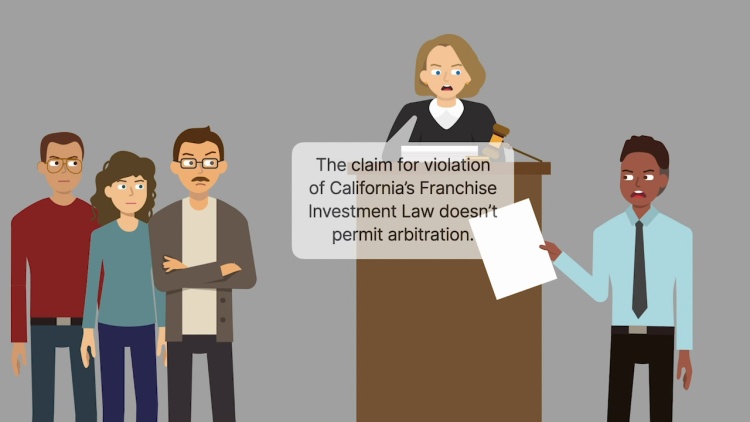Southland Corp. v. Keating
United States Supreme Court
465 U.S. 1 (1984)
- Written by Salina Kennedy, JD
Facts
Keating (plaintiff), a 7-Eleven convenience store franchisee, filed a class-action lawsuit in California superior court against franchisor Southland Corporation (defendant), alleging causes of action arising from the parties’ franchise agreement and from the California Franchise Investment Law (California statute). Southland moved to compel arbitration, arguing that the parties’ franchise agreement contained an arbitration clause applicable to all claims arising out of the agreement or its breach. The trial court, reasoning that the California statute prohibited arbitration of claims made pursuant to it, compelled arbitration of all claims except for those based on the California statute. The appellate court reversed, holding that all of Keating’s claims, including those based on the California statute, were arbitrable. To hold otherwise, the court reasoned, would be to interpret the California statute as violating the Federal Arbitration Act (FAA), rendering the California statute invalid pursuant to the Supremacy Clause of the United States Constitution. The California Supreme Court reversed, holding that claims controlled by the California statute were not arbitrable but that the statute nonetheless did not violate the Supremacy Clause. The United States Supreme Court granted certiorari.
Rule of Law
Issue
Holding and Reasoning (Burger, C.J.)
Dissent (O’Connor, J.)
What to do next…
Here's why 906,000 law students have relied on our case briefs:
- Written by law professors and practitioners, not other law students. 47,100 briefs, keyed to 996 casebooks. Top-notch customer support.
- The right amount of information, includes the facts, issues, rule of law, holding and reasoning, and any concurrences and dissents.
- Access in your classes, works on your mobile and tablet. Massive library of related video lessons and high quality multiple-choice questions.
- Easy to use, uniform format for every case brief. Written in plain English, not in legalese. Our briefs summarize and simplify; they don’t just repeat the court’s language.





